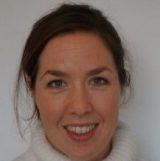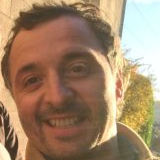Lora is the director of the Centre for Environment and Human Health and chair of oceans and human health at the University of Exeter Medical School. She is a board certified occupational and environmental health physician and epidemiologist with over 30 years of experience and expertise in environment and occupational exposures and human health research and training.
Michiel vos
Michiel combines approaches from microbiology, evolutionary ecology and population genomics to study bacterial evolution, focusing on horizontal gene transfer, sociomicrobiology and pathogens in the environment. Key projects include exploring the ecological drivers of antimicrobial resistance and virulence in aquatic bacteria.
Kelly thornber
Kelly’s research focuses on the global threat of antimicrobial resistance and developing more sustainable aquaculture practices, both in the UK and globally.
Aimee Murray
Aimee’s research area is antimicrobial resistance in the environment, particularly due to anthropogenic impacts in wastewater and receiving environments. This includes evolution and ecology of antimicrobial resistance, direct selection at low concentrations and co-selection by other antimicrobials and non-antimicrobial compounds, environmental risk assessment, and developing and validating the novel ‘SELECT’ method for rapid determination of selective concentrations of antibiotics and environmental surveillance of antimicrobial resistance. She has a long-standing collaboration with AstraZeneca and engaging with industry and policy makers.
anne leonard
Anne’s research focuses on marine systems and epidemiology. She studies catchment-level processes contributing to the transmission of antibiotic resistant bacteria in coastal bathing waters, with a view to identifying mitigation strategies to reduce the spread of antibiotic resistant bacteria in the environment. She is particularly interested in recreational waters, transmission in coastal bathing waters and microbial genes associated with land uses and re-use of water and crop irrigation.
will gaze
Will research is in antimicrobial resistance in farmed and natural environments, including major elements of environmental sampling and wide-ranging analytical methodologies. This includes AMR evolution in the environment, using in situ and in vivo experiments, landscape scale dissemination of AMR and human exposure and transmission studies. Projects are divided into three main themes: ecology, evolution and public health perspectives. These map onto those identified in successive WHO, EU and UK AMR action plans facilitating interdisciplinary research approaches and joined up thinking.
Eshwar Mahenthiralingam
Esh’s research includes pathogenesis and ecology of antibiotic resistant Gram-negative bacterial opportunistic pathogens. In addition his work covers bacteria which cause industrial contamination and are prevalent in water, antibiotic producing bacteria and genomics and population biology bacteria.
Angus Buckling
Angus is an experimental biologist interested in links between water and health. He works on evolutionary ecology of microbes, primarily by studying evolution in real time in controlled environments (experimental evolution).
Jannis Wenk
Jannis’ research investigates both physical and chemical water treatment, including developing more efficient technologies for gas transfer, investigate novel types of process combinations in engineered and nature-oriented treatment scenarios, such as constructed wetlands, and to further explore oxidative water treatment for example, ozonation, UV-light and radical induced processes as an important step to remove aqueous contaminants, pathogens and avoid spread of antimicrobial resistance. Current research in his group also investigates fate of microplastics in constructed wetland and separation technologies for microplastics.
Benedek Plosz
Benedek’s research interests include assessing the fate of trace organic chemicals in urban water systems (pharma, drug biomarkers), computational fluid dynamics of bioengineered water systems, and biogeochemical used-water resource recovery.
Barbara Kasprzyk-Hordern
Barbara’s research focuses on environmental pollution, environmental epidemiology, water quality/water treatment and analytical chemistry. Barbara is particularly interested in water pollution and novel technologies used to decrease contamination of water. Recent interests are related to urban water and human epidemiology.
Catrin Williams
Catherine has multi-disciplinary research interests, from pure microbiology to physico-chemical techniques and microwave engineering. Her work addresses important research themes, such as antimicrobial resistance, biomedical imaging and bioelectromagnetics.












